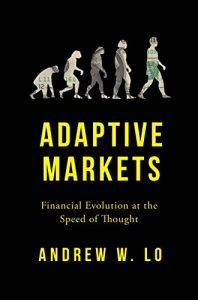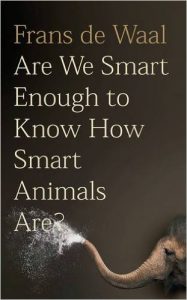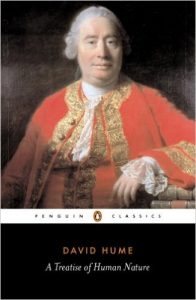I finished Daniel Dennett’s From Bacteria to Bach and Back, and personally have no problem with his view that human consciousness is an evolved characteristic built over time from the ground up, and that human culture evolves too, starting with language and continues through memes. In other words, it’s all cranes, not skyhooks. Some people are obviously troubled by this argument. I lack the technical knowledge to evaluate all the detail here. It fundamentally seems far more plausible to me than the alternative.
As a matter of logic, this requires me – and Dennett – to take seriously the argument that computers/AI could evolve minds and consciousness. He puts some weight on the importance of embodiment – but that might be possible although we’re not there yet. Computer vision would be different from ours, but then so is flies’ vision or cephalopods’.
More of an issue, it seems to me, is that computers/AI are very energy-hungry compared to our brains: at the moment, Dennett writes, computer intelligence is parasitical, depending on humans to feed them a lot of energy and otherwise maintain them. What’s more, computers don’t have to struggle or compete: “Down in the hardware, the electric power is doled out evenhandedly and abundantly; no circuit risks starving. At the software level, a benevolent scheduler doles out machine cycles to whatever process has the highest priority, and although there may be a bidding mechanism … this is an orderly queue, not a struggle for life.”
So for now, I’ll stick to thinking Singularity-talk is mystical hype; but will try to keep an open mind on this question.
I’ve always had a soft spot for memes. Dennett uses words as the paradigmitic examples. It reminded me of a jokey line I read once about libraries being the dominant life form on Earth because they are so good at finding new hosts who will start to accumulate books.
There’s a nice section on the importance of social trust at the end of Bacteria/Bach, citing Paul Seabright’s wonderful Company of Strangers. Trust is the invisible glue of human societies, Dennett writes, and much too recent to be a hard-wired natural instinct. “We have bootstrapped ourselves into the heady altitudes of modern civilisation, and our natural emotions and other instinctual responses do not always serve our new circumstances. Civilisation is a work in progress and we abandon our attempt to understand it at our peril.”
Looking at the news these days, that isn’t a very optimistic note on which to end. And yet yesterday brought the amazing launch of Space X’s Falcon Heavy. Astonishing. Perhaps we’ll end up on Mars while the computers colonise Earth.
[amazon_link asins=’014197804X’ template=’ProductAd’ store=’enlighteconom-21′ marketplace=’UK’ link_id=’b39737f3-0c32-11e8-ad96-a76f5f94eca4′] [amazon_link asins=’0691146462′ template=’ProductAd’ store=’enlighteconom-21′ marketplace=’UK’ link_id=’bd13ce93-0c32-11e8-83e6-1bec8223b6a1′]



